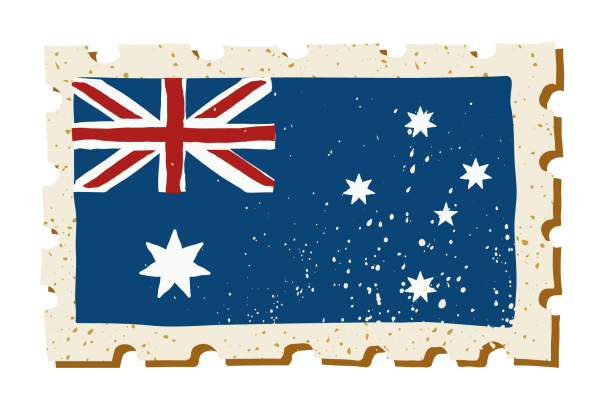In Malaysia, alongside traditional payment methods, the adoption of mobile payment solutions is on the rise, with popular apps like GrabPay, Boost, Touch ‘n Go eWallet, and Samsung Pay gaining prominence. The country’s e-commerce sector is experiencing rapid growth, with platforms such as Lazada, Shopee, and Zalora becoming increasingly popular and offering a diverse range of products and services. Malaysians are also turning to online platforms for convenient bill payments, including utilities and insurance premiums, allowing for efficient financial management from home. Despite the surge in digital payments, cash remains widely used for everyday transactions, particularly among small businesses and street vendors who favor its convenience and lower transaction fees. The payments landscape in Malaysia is characterized by a diverse mix of traditional methods like credit cards and cash alongside newer options, and as technology advances and consumer preferences evolve, digital payment methods are expected to continue gaining traction in the country.
Popular offline payment methods in Malaysia
Cash
Cheques
Direct Bank Transfers
ATM Transfers
Bank Drafts
Money Orders
Prepaid Cards
QR Code Payments
Debit Cards
List of payment methods in Malaysia
Visa is widely accepted as a payment method in Malaysia. It can be used at most retail stores, restaurants, hotels, and online merchants. Visa cards are also accepted at ATMs for cash withdrawals. Additionally, many Malaysians use Visa for online shopping and bill payments.
Apple Pay, a mobile payment and digital wallet service by Apple Inc., was introduced in Malaysia in May 2019, supported by major banks such as Maybank, CIMB, Public Bank, Hong Leong Bank, and RHB Bank. Users can add credit or debit cards from these banks to their Apple Wallet and make contactless payments at participating merchants using iPhone, Apple Watch, iPad, or Mac devices. Compatibility requires the latest iOS or watchOS version, and after adding cards, transactions are authenticated with Touch ID or Face ID. Apple Pay enhances security by using Near Field Communication (NFC) technology, tokenization, and encryption, minimizing the risk of fraud. Its elimination of the need for physical cards and widespread support has contributed to its popularity in Malaysia, offering a secure and convenient alternative to traditional payment methods.
Mastercard is extensively utilized as a payment method in Malaysia, accepted for both online and offline transactions across a variety of establishments, including retail stores, restaurants, hotels, and online platforms. Making a payment with Mastercard involves either presenting the card to the merchant or entering card details for online purchases, with some vendors supporting contactless payments through the tap-and-go feature. The range of Mastercard offerings in Malaysia encompasses credit cards, debit cards, and prepaid cards, each featuring distinct benefits like rewards programs, cashback offers, and travel perks. In addition to physical cards, Mastercard provides virtual cards for secure online transactions, linked to existing accounts. Enhanced security measures, such as EMV chip technology to combat counterfeit fraud and customizable alerts, further contribute to Mastercard’s popularity, solidifying its status as a convenient and widely embraced payment option in the Malaysian market.
Atome is a buy now, pay later (BNPL) service available in Malaysia, enabling consumers to split their payments into three equal installments over time. To utilize Atome, users must download the app, create an account, and select it as the payment method during checkout at participating merchants. The total purchase amount is divided into three installments, with the first paid upfront and the subsequent two automatically deducted monthly from the user’s linked debit or credit card. Atome does not impose interest or fees for its BNPL service, although late payments may result in additional charges. The Atome app facilitates payment management and installment tracking for users. Essentially, Atome serves as an interest-free and fee-free payment alternative, granting Malaysian consumers flexibility in managing their purchases through installment payments.
GrabPay is a widely utilized mobile wallet and payment method in Malaysia, offering a secure and convenient way to pay for services such as transportation, food delivery, and online shopping. To access GrabPay, users must download the Grab app, create an account, and link their bank account or credit/debit card to their GrabPay wallet. Additionally, users can top up their wallet through cash at specified locations or online banking. Once loaded, GrabPay can be used to pay for rides, order food, make online purchases, and transfer money to other GrabPay users. The platform provides users with various promotions, including cashback and transaction discounts, as well as the opportunity to earn GrabRewards points for every transaction, redeemable for discounts or freebies. Overall, GrabPay offers Malaysians a seamless and rewarding payment experience across a diverse array of services.
7-Eleven, a widely popular convenience store chain in Malaysia, provides a range of services, including bill payment for utilities, telecommunications, and credit cards. Customers can make payments by following a simple process: visiting any 7-Eleven store, informing the cashier of their intention to pay a bill, providing necessary details, and paying the amount in cash. The cashier generates a payment slip as proof of payment, which should be retained until the biller confirms receipt. This payment method offers convenience for those without online banking access or who prefer cash transactions. With 7-Eleven’s 24/7 availability, customers can make payments outside regular banking hours, enhancing accessibility for a diverse range of users.
JCB, or Japan Credit Bureau, is a widely embraced payment method in Malaysia, accepted by numerous merchants and online retailers throughout the country. Users can employ JCB credit or debit cards at the point of sale in physical stores, with many establishments prominently displaying JCB logos to signify their acceptance of these cards. The convenience extends to online shopping, where customers can opt for JCB as their payment method and input card details for seamless transactions. JCB cardholders in Malaysia enjoy various perks, including exclusive discounts and promotions at participating merchants, along with special privileges like airport lounge access and travel insurance coverage. Boasting widespread acceptance and offering numerous benefits, JCB has become a favored payment option for both locals and tourists in Malaysia.
DuitNow, offered by Payments Network Malaysia (PayNet), is a prominent payment method in Malaysia enabling users to conduct secure and instantaneous transactions using either their mobile phone numbers or National Registration Identity Card (NRIC) numbers. Users register this information with their respective banks to utilize the service, facilitating swift and hassle-free person-to-person transfers, bill payments, online purchases, and merchant payments. DuitNow’s key advantage lies in its user-friendly approach, allowing individuals to make payments without the necessity of sharing or memorizing bank account details, instead relying on their mobile numbers or NRIC numbers. This not only enhances convenience but also bolsters security by minimizing the risk of fraud and unauthorized access to sensitive information. Additionally, DuitNow contributes to financial inclusion by enabling those without a traditional bank account to receive funds directly through their mobile numbers, fostering participation in the digital economy and easing access to financial services. Overall, DuitNow stands as a rapid, convenient, and secure payment solution, streamlining money transfers for Malaysians.
WeChat Pay, a widely popular mobile payment method in China, has extended its services to Malaysia, allowing users to make seamless payments through the WeChat app. To utilize WeChat Pay in Malaysia, individuals must have a WeChat account and link their bank or credit card to their WeChat wallet. The payment process involves scanning QR codes at participating merchants, including retail stores, restaurants, online platforms, and utility bill payments. Notable establishments like Watsons, Guardian, and KK Super Mart accept WeChat Pay. While offering convenience for Chinese tourists and residents familiar with the app, WeChat Pay may not be as universally accepted as local alternatives like credit cards or e-wallets such as GrabPay or Touch ‘n Go. Therefore, users are advised to confirm a merchant’s acceptance of WeChat Pay before making transactions.
Touch ‘n Go Digital is a widely embraced payment solution in Malaysia, functioning as a digital wallet accessible through a mobile app. Enabling cashless transactions, the system permits users to pay for diverse services, including retail purchases, mobile credit top-ups, and highway tolls. To utilize Touch ‘n Go Digital, individuals must download the Touch ‘n Go eWallet app, register, and link their bank accounts or credit cards to add funds. Payments are executed by scanning a merchant-provided QR code, deducting the amount from the user’s digital wallet with a receipt generated for reference. Accepted at various Malaysian establishments, from retail outlets and restaurants to online platforms and public transportation, the system also facilitates fund transfers and cash withdrawals. Its appeal lies in the convenience of eliminating the need for physical currency or cards, promoting ease of use, and offering enticing promotions and discounts. Touch ‘n Go Digital has significantly contributed to the adoption of cashless transactions in Malaysia, reducing reliance on tangible currency throughout the country.
PayPal is a widely utilized payment method in Malaysia, offering users a secure and convenient means of making online payments. Users can link their PayPal accounts to their bank accounts or credit cards, enabling them to easily make purchases on various online platforms. To use PayPal in Malaysia, individuals must create and verify their accounts by linking them to their bank accounts or credit cards. Once verified, users can seamlessly utilize PayPal for transactions. Numerous online merchants in Malaysia accept PayPal, allowing users to select it as a payment option during checkout and complete transactions securely without divulging sensitive financial information. Beyond online purchases, PayPal serves as a platform for sending and receiving money between individuals using email addresses or mobile numbers associated with their PayPal accounts. In essence, PayPal provides Malaysians with a secure and hassle-free method for online payments and money transfers, with widespread acceptance among online merchants in the country.
Boost Wallet is a popular mobile payment solution in Malaysia, enabling users to conveniently make transactions using their smartphones at a diverse range of merchants, including online stores, physical shops, and street vendors. To utilize Boost Wallet, users must download the app, create an account, and can then fund their wallet by linking it to their bank account or purchasing credits at select retail outlets. Payments are made by scanning the merchant’s QR code with the app’s built-in scanner, deducting the amount from the user’s wallet balance, and generating a receipt for reference. The wallet ensures convenience, security through encryption and optional PIN/biometric authentication, and often rewards users with cashback and discounts at participating merchants, making it an appealing choice for consumers seeking a versatile and incentivized payment method in Malaysia.
Alipay, developed by Alibaba Group, is a widely used mobile payment platform in China that has expanded its services to Malaysia. Accepted at various establishments catering to Chinese tourists and expatriates, such as shopping malls, restaurants, hotels, and tourist attractions, Alipay facilitates both in-store and online transactions. Users in Malaysia must register an Alipay account, link it to their bank account or credit card, and can then make payments by scanning QR codes or entering the merchant’s Alipay ID. Alipay offers a secure and convenient payment method, with additional perks like promotions and discounts from participating merchants. Despite its growing acceptance, not all Malaysian merchants currently support Alipay, though its popularity is anticipated to rise as more businesses recognize its appeal to Chinese customers.
Diners Club International operates as a global payment network providing credit cards to consumers and businesses, with widespread acceptance in Malaysia across various merchants, including restaurants, hotels, retail outlets, and online retailers. To make a payment, cardholders can simply present their Diners Club card at the point of sale, where it can be swiped, inserted into a card reader, or used for contactless transactions. The cards come with benefits such as reward points, travel insurance, and airport lounge access, along with exclusive privileges and discounts at specific merchants. Besides in-store transactions, Diners Club cards are also commonly used for online purchases on e-commerce platforms in Malaysia. Overall, Diners Club serves as a convenient and widely embraced payment method, offering flexibility for both in-person and online transactions in the country.
Google Pay is a digital wallet and online payment system developed by Google, enabling users in Malaysia to make payments through their compatible Android devices. Accessible to various online merchants and service providers, Google Pay requires users to have the app installed, a Google account, and linked payment cards. Accepted cards include credit, debit, and prepaid cards from participating banks. The setup process involves adding payment cards to the app. Once set up, Google Pay facilitates seamless online transactions at supported merchants, allowing users to select it as their payment method during checkout and authenticate payments using device security features. Additionally, Google Pay supports peer-to-peer payments, enabling users to send money to friends and family by entering the recipient’s details and amount in the app. Overall, Google Pay provides a secure and convenient solution for digital payments in Malaysia, eliminating the reliance on physical cash or cards and offering a centralized platform for managing payment information.
UnionPay is a highly prevalent and convenient payment method in Malaysia, accepted at major retailers, hotels, restaurants, and online merchants for both offline and online transactions. The widespread acceptance of UnionPay cards facilitates seamless purchases for both locals and tourists. Beyond its broad usability, UnionPay provides cardholders in Malaysia with various promotions and discounts, spanning shopping, dining, travel, and entertainment. To use UnionPay, one simply presents the card at the point of sale or inputs card details for online transactions, with some merchants requiring additional verification like a PIN or signature. In summary, UnionPay’s extensive acceptance and promotional offerings make it a user-friendly choice for individuals in Malaysia, ensuring ease and accessibility in their payment experiences.



